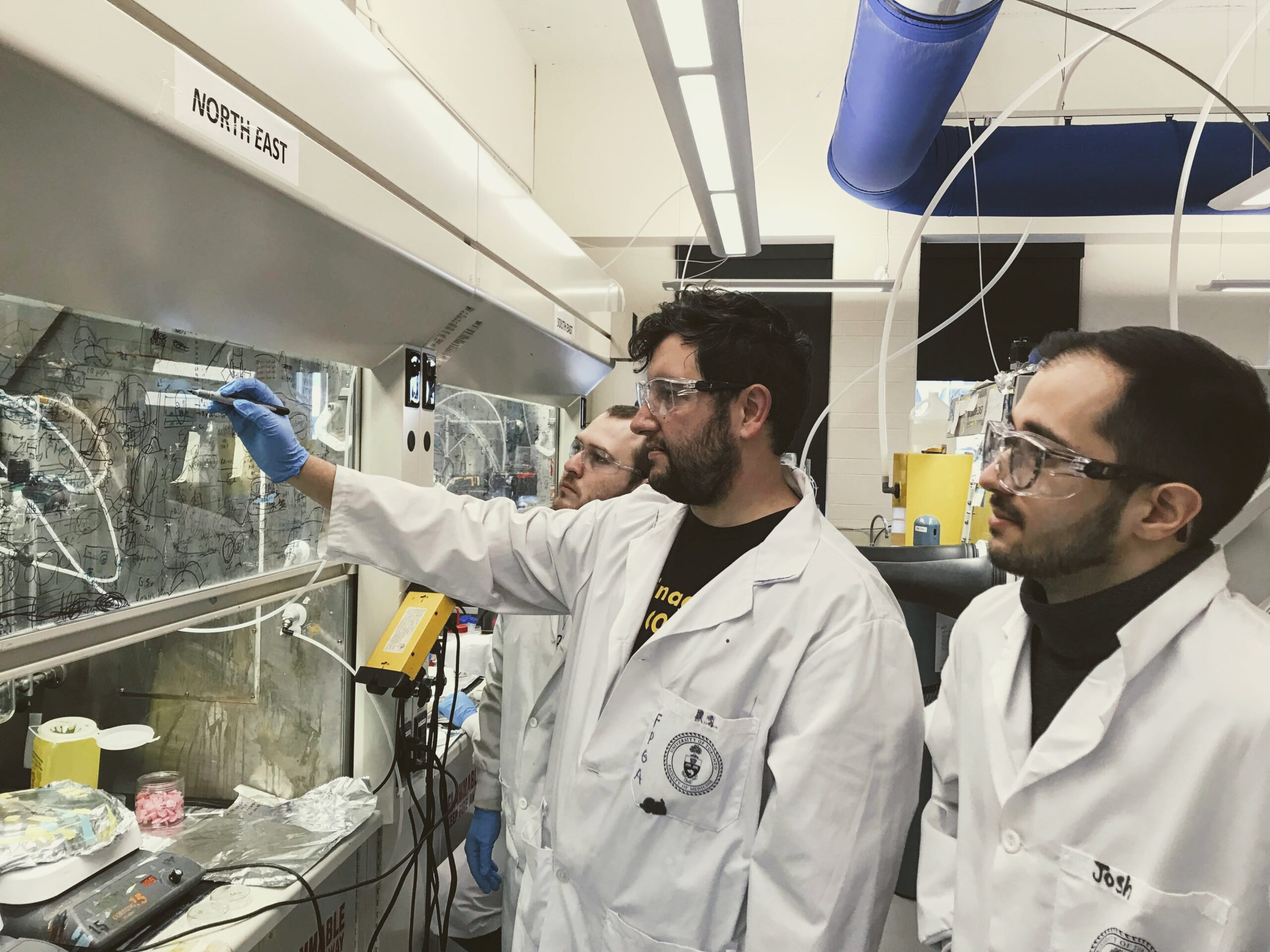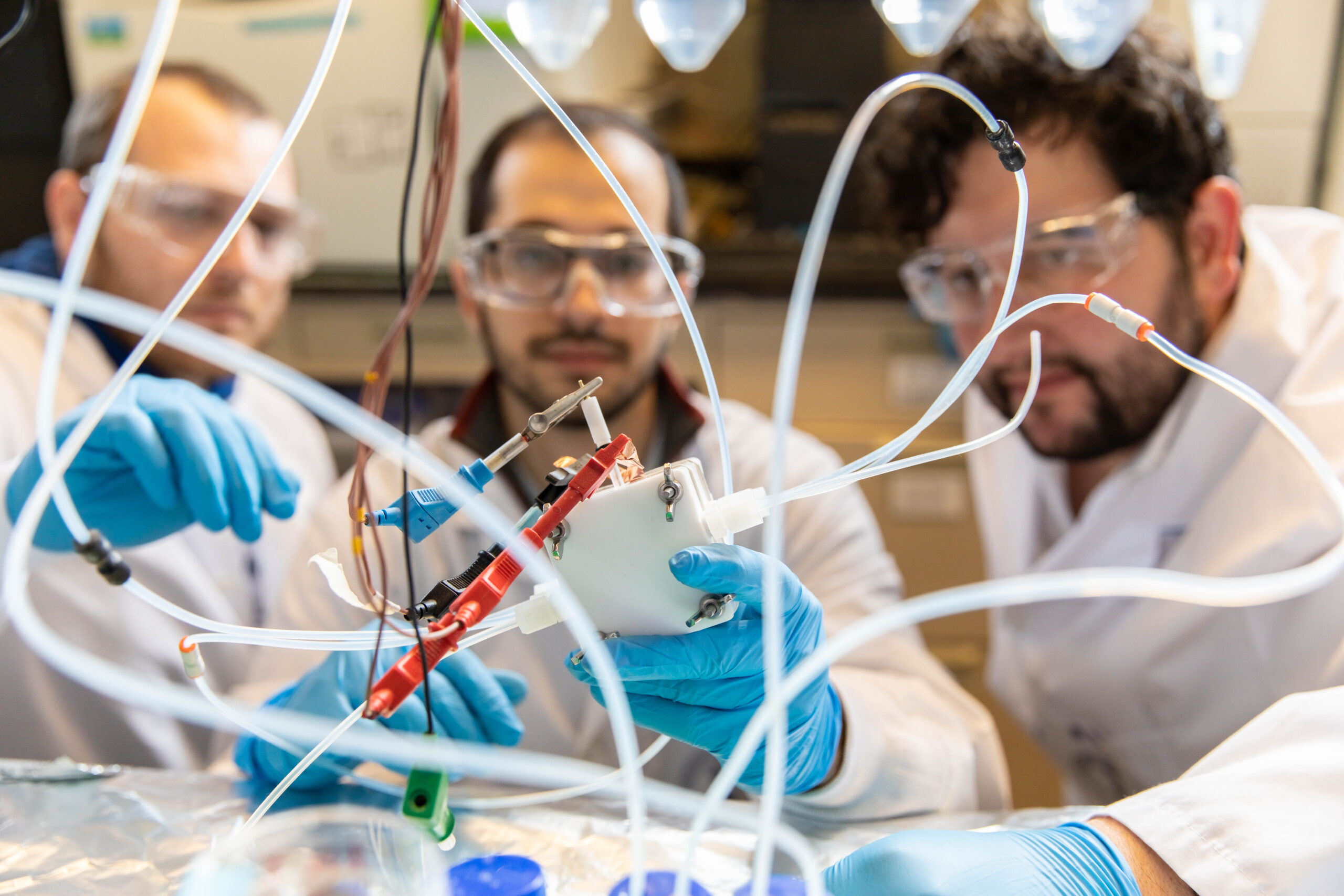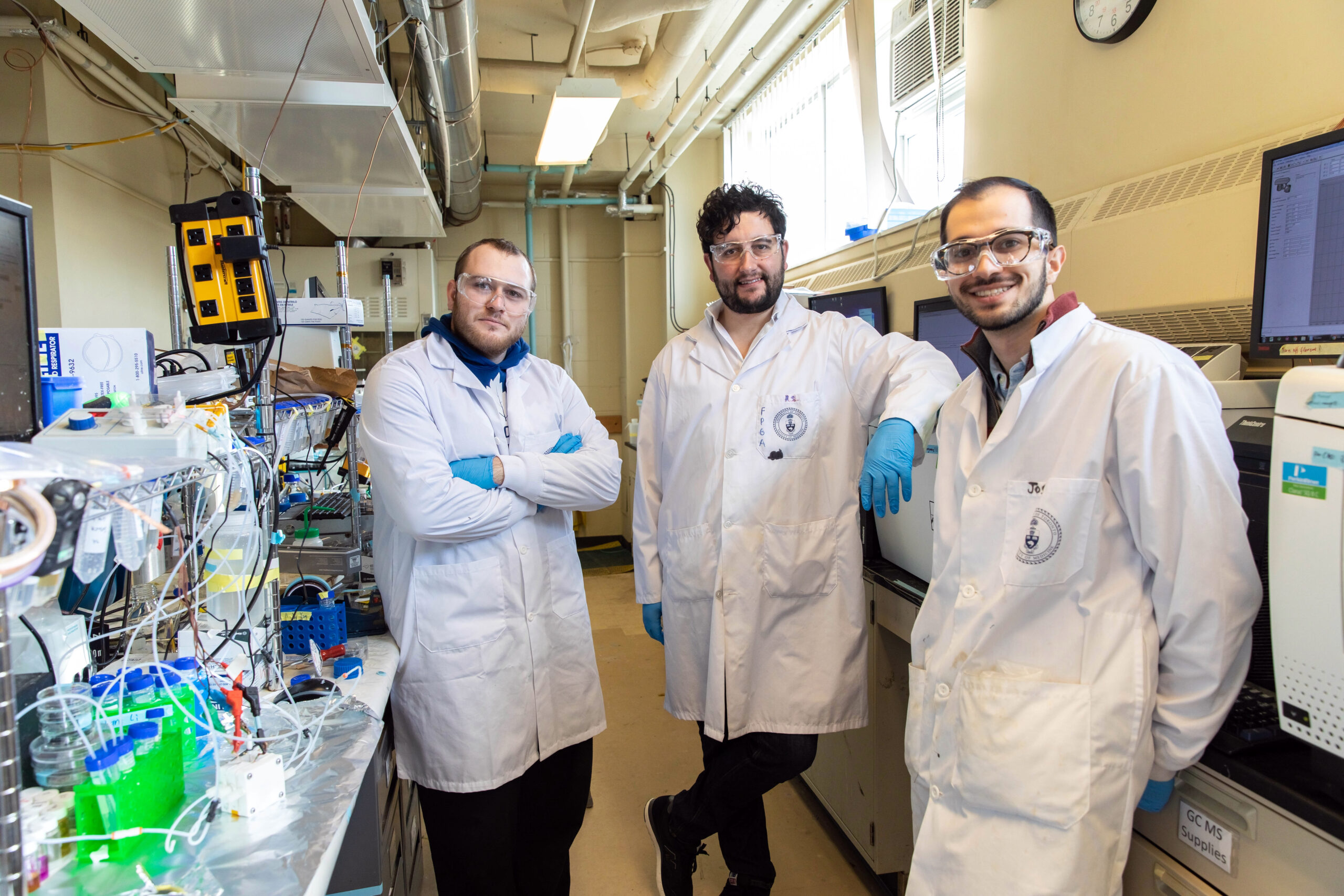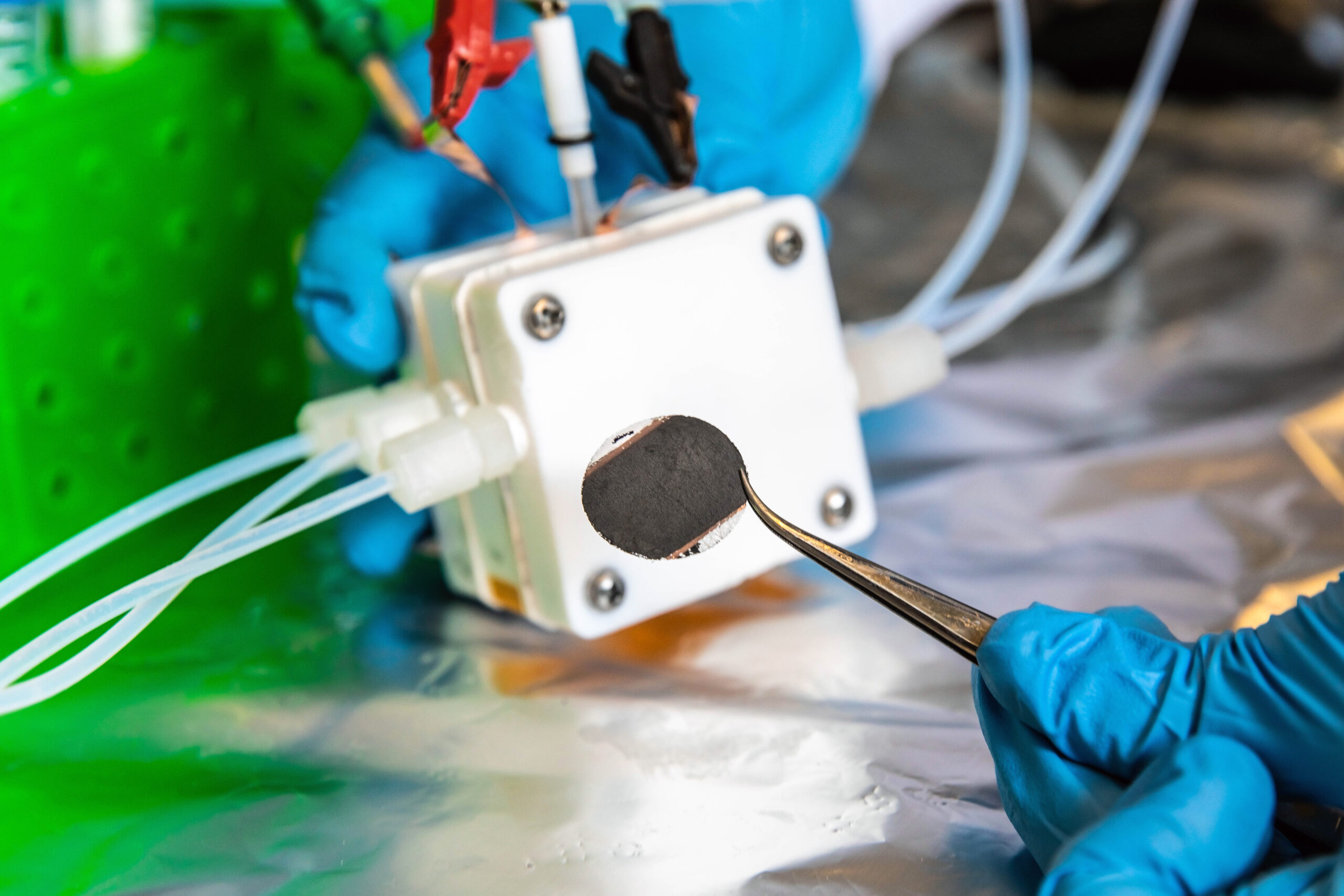UofT, KAUST, and Caltech give a Perspective on augmenting heterogeneous catalysts using molecular strategies in Nature Materials.
Makhsud, Kristopher, Mingyang and colleagues publish “Multi-cation perovskites prevent carrier reflection from grain surfaces” in Nature Materials.
Xiaopeng, Yi and colleagues publish “Managing grains and interfaces via ligand anchoring enables 22.3%-efficiency inverted perovskite solar cells” in Nature Energy.
Pelayo, Cao, Adnan, Josh and colleagues publish “CO2 electrolysis to multicarbon products at activities greater than 1 A cm−2” in Science.
Fengwang and colleagues publish “Cooperative CO2-to-ethanol conversion via enriched intermediates at molecule–metal catalyst interfaces” in Nature Catalysis.
Yanwei and Erick publish “Tuning OH binding energy enables selective electrochemical oxidation of ethylene to ethylene glycol” in Nature Catalysis.
Yuhang Wang and colleagues publish “Catalyst synthesis under CO2 electroreduction favours faceting and promotes renewable fuels electrosynthesis” in Nature Catalysis.
Se-Woong will join the Department of Chemical and Biological Engineering at Korea University as an assistant professor. You are all well-aware of Korea University too – it is consistently ranked among the top few comprehensive, research-intensive, universities in Korea, in the excellent company of SNU and SKKU. Prof. SWB’s research will be CQD-based optoelectronics.
Se-Woong will join the Department of Chemical and Biological Engineering at Korea University as an assistant professor.
You are all well-aware of Korea University too – it is consistently ranked among the top few comprehensive, research-intensive, universities in Korea, in the excellent company of SNU and SKKU.
Prof. SWB’s research will be CQD-based optoelectronics.
Dae-Hyun will join DGIST (Daegu Gyeongbuk Institute of Science & Technology) as an assistant professor in the Department of Energy Science & Engineering. DGIST (https://www.dgist.ac.kr/en/) is one of the nation’s Institutes of Science and Technology (-IST) universities (KAIST, UNIST, GIST, DGIST) of Korea. DGIST is the most recently established of these, and is receiving active support from the government in its development. DGIST provides an excellent research environment including facilities and funding as a result. Prof. DHN will be in the Department of Energy Science & Engineering, which covers solar energy conversion, fuel cells, secondary batteries, and renewable energy. Prof. Dae-Hyun will lead a program in electrocatalysis research. He will lever synergies with the allied institute within DGIST. Alumni of our group (Prof. Jongmin Choi, Dr. Younghoon Kim) are also at DGIST.
Dae-Hyun will join DGIST (Daegu Gyeongbuk Institute of Science & Technology) as an assistant professor in the Department of Energy Science & Engineering.
DGIST (https://www.dgist.ac.kr/en/) is one of the nation’s Institutes of Science and Technology (-IST) universities (KAIST, UNIST, GIST, DGIST) of Korea. DGIST is the most recently established of these, and is receiving active support from the government in its development. DGIST provides an excellent research environment including facilities and funding as a result.
Prof. DHN will be in the Department of Energy Science & Engineering, which covers solar energy conversion, fuel cells, secondary batteries, and renewable energy. Prof. Dae-Hyun will lead a program in electrocatalysis research. He will lever synergies with the allied institute within DGIST. Alumni of our group (Prof. Jongmin Choi, Dr. Younghoon Kim) are also at DGIST.






